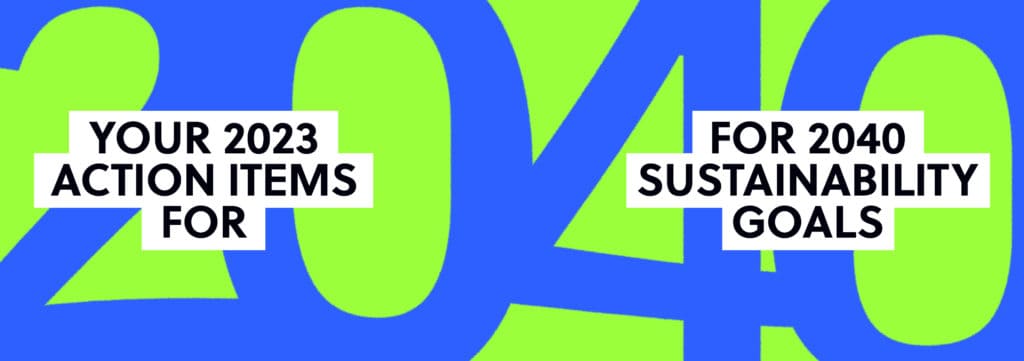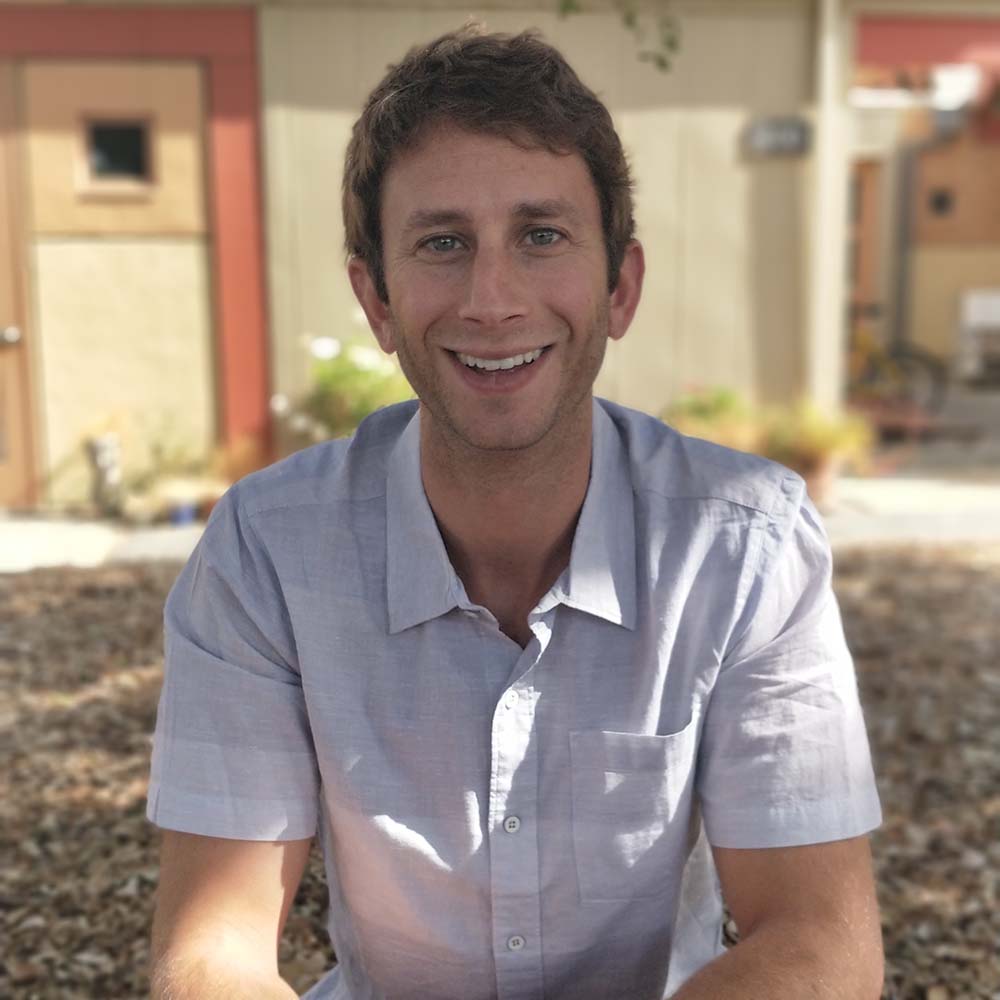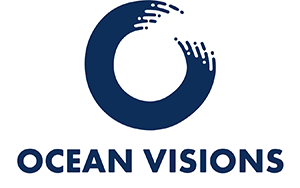David Koweek | Modern Planeteer


Your Action Items for 2040 Net-Zero
Over 702 companies on the Forbes 2000 have made net-zero pledges. Whether your organization has made a pledge or plans to make one soon, there’s a massive difference between pledging net-zero and achieving it. Do you have a clear roadmap for your sustainability journey? What are the right steps to consider to achieve 2040 net-zero carbon, water, and waste goals? It’s time to create a clear roadmap.
As a trained marine and Earth systems scientist, David drives innovative ocean-based climate solutions for a sustainable future.
Welcome to this edition of Modern Planeteers, a series highlighting leaders working tirelessly to address the climate crisis and create a more sustainable future. In this Q&A, we feature David Koweek, Ph.D., Chief Scientist at Ocean Visions, a non-profit organization dedicated to ocean-based climate solutions. With a strong background in marine and Earth system science, David leads and participates in global field expeditions and is an expert in evaluating ocean solutions. Ocean Visions collaborates with research institutions, the private sector, and public-interest organizations to stabilize the climate and restore ocean health. In this interview, David discusses his work at Ocean Visions, upcoming projects, and the organization’s various initiatives to expand the community of stakeholders involved in ocean-based climate solutions.
Meet David Koweek, a Modern Planeteer!

David Koweek, PhD is Chief Scientist at Ocean Visions, where he is responsible for ensuring scientific accuracy and integrity. David is trained as a marine and Earth system scientist. He has led and participated in field expeditions all across the world, including on the Great Barrier Reef, the Ross Sea, the California coast, the Sargasso Sea, and natural carbon dioxide vents off Italy. An expert in evaluating the potential of various ocean solutions, David is a frequent participant in research conferences and expert-level panels, including recent panels for the Energy Futures Initiative, the Foundation for Climate Restoration, and the U.S. National Academy of Sciences. His scholarly works have been published in top-tier journals, including Nature. Prior to his role with Ocean Visions, David was a postdoctoral research scientist at the Carnegie Institution for Science. He holds a Ph.D. from Stanford University and a B.S. from Brown University.
ABOUT THE MODERN PLANTEERS SERIES
The 90s cartoon Captain Planet is an unexpected part of CarbonBetter’s origin story. Our founder, Tri Vo, was inspired as a child by the “Planeteers,” who fought eco-villains that were trying to destroy the planet. He learned that everyone can make a difference and every step in the right direction matters. Today, the business that Tri built helps companies in all industries decarbonize, and we’re not alone in doing our part to fight climate change. In this series, we feature modern day Planeteers—heroes who are working to save our planet. You can be one too!
Explore the SeriesDavid, for those who may not be familiar, can you tell us a little about Ocean Visions and what you do there?
Ocean Visions is a non-profit organization that catalyzes innovation at the intersection of the ocean and climate crises. We facilitate multisector collaborations from within our Network and beyond, working with leading research institutions, the private sector, and public-interest organizations to fully explore and advance responsible and effective ocean-based climate solutions. In short, we work to stabilize the climate and restore ocean health.
I am the Chief Scientist of Ocean Visions, which means that I am responsible for ensuring scientific accuracy and integrity behind our work.
What does your day-to-day look like? What kinds of projects are you working on currently? Do you have any exciting projects coming up?
My work takes a number of shapes, and no two days are the same. Some typical daily activities include: meeting with external audiences and partners to share our work and learn about what others are doing, working with Ocean Visions colleagues to build out new programs and activities, reading scientific literature to stay up-to-day on cutting-edge science, speaking with reporters looking to share stories of climate solutions, and more.
Right now, a lot of my time and energy is spent helping to plan the Ocean Visions Summit which is happening from April 4–6 in Atlanta, Georgia. Our staff has done a great job assembling an exciting three days to highlight ocean-based climate solutions and I am excited to see so many colleagues in-person in just a few weeks time.
We are also planning some exciting new work around a comprehensive agenda for ocean-based climate mitigation. So there will be lots of updates and new work coming from us in 2023!
Ocean Visions recently released a digital roadmap on cultivating microalgae for carbon sequestration. Can you tell us more about this? There are other roadmaps available as well, is that right?
Microalgae may be able to play an important role in carbon dioxide cleanup. To help evaluate its potential, Ocean Visions created a living and interactive tool (road map) to capture the state of various technologies, their potential impacts, knowledge gaps, and a set of “first-order” priorities to accelerate our knowledge of how to use microalgae or ocean-based carbon dioxide removal (CDR). The microalgae road map was released in early 2023 and complements the existing suite of road maps, which includes three road maps that are technology focused—ocean alkalinity enhancement, electrochemical CDR, and macroalgae cultivation—and two on cross-cutting issues—expanding finance and investment, and growing and maintaining public support.
Launched in April 2021, XPRIZE Carbon Removal is a four year $100 million global competition focused on developing carbon removal technologies at scale. Can you tell us more about Ocean Visions Launchpad, which funds select competitors in the challenge who are using ocean-based solutions?
As part of our continued efforts to support innovation and testing of possible solutions, we provide tailored expert support to six selected competitors for the $100M XPRIZE Carbon Removal through the Ocean Visions Launchpad by building customized expert advisory teams, selected from our Network where possible. These expert teams have helped companies test and validate their technologies and business models in order to improve their chances of success.
“We’re making important strides towards supporting the development of a global, multisector, and multidisciplinary community interested in innovating and developing solutions to pressing challenges at the ocean-climate nexus.”
DAVID KOWEEK, CHIEF SCIENTIST AT OCEAN VISIONS
In addition to its work catazlyzing and supporting the R&D of ocean-based climate solutions, Ocean Visions has three major initiatives focused on expanding the community for ocean-based solutions, including the CDR Community, which is the leading knowledge hub on ocean-based carbon dioxide removal. Can you tell us more about these initiatives, and why expanding the community is an important aspect of the overall solution?
We’re making important strides towards supporting the development of a global, multisector, and multidisciplinary community interested in innovating and developing solutions to pressing challenges at the ocean-climate nexus.
- Building Community
Ocean Visions manages the Ocean-Based CDR Community, the leading knowledge hub on ocean-based CDR. The Community platform brings together all ocean-based CDR stakeholders, including scientists, entrepreneurs, funders, non-government organizations (NGOs), and others, to advance the state of knowledge, build bridges across disciplines, and help the field move towards evaluating, testing, and piloting the safest and most promising ocean-based CDR approaches. - Ocean Visions – UN Decade Collaborative Center for Ocean-Climate Solutions
The Ocean Visions – UN Decade Collaborative Center for Ocean-Climate Solutions (OV – UN DCC) officially launched in 2022 with critical support from Georgia Aquarium and Georgia Tech—two of the cofounders of Ocean Visions. Headquartered at Georgia Aquarium, the Center leads and supports processes to co-design, develop, test, and ultimately deliver scalable and equitable ocean-based solutions to mitigate and reverse the effects of climate change. - Global Ecosystem for Ocean Solutions
The Global Ecosystem for Ocean Solutions (GEOS), a program endorsed by the United Nations Decade of Ocean Science for Sustainable Development, helps to expand the work of Ocean Visions to an international scale by lifting efforts, building capacity, and connecting initiatives across continents. - Ocean Visions Biennial Summit 2023
Launched in 2019 and held again in 2021, the Ocean Visions Summit has become a flagship event for the organization and the ocean-based climate solutions community at large. The Ocean Visions Biennial Summit 2023, scheduled for 4-6 April at the Georgia Aquarium in Atlanta, will be an exceptional opportunity for a multidisciplinary community to advance solutions to complex challenges at the ocean-climate nexus.
Where do you think the biggest gap exists for R&D in sustainability, and what can be done about it?
We know that we need gigaton-scale carbon removal to have any chance of stabilizing planetary warming, and much more if we want to return to a stable habitable climate. But there are so many unanswered questions about how this will all work. I think Frontier has done a really nice job highlighting all of the existing R&D gaps that will help us advance carbon removal from where we are now to where we know we need to arrive.
In your opinion, what's the most promising emerging ocean-based carbon dioxide removal approach?
I don’t have favorites here. I am completely focused on accelerating R&D across all ocean-based carbon dioxide removal approaches. We know that ocean-based pathways have enormous potential, but still very little evidence about efficacy and environmental impacts (beyond what has been learned from modeling studies). I am very interested in seeing controlled field trials for all of these technologies so that we can learn what works and what does not work in real world environments. I am convinced this in the information that we need to make thoughtful decisions with respect to these technologies.
What's your favorite eco-friendly habit, or what's the most effective habit that you wish more people knew about?
Biking.
What is one of the best or most worthwhile investments you’ve ever made? (Could be an investment of money, time, energy, etc.)
The time and energy I have spent, and continue to spend, on my relationship with my wife. That relationship is the foundation that supports me in everything else.
How has a failure, or apparent failure, set you up for later success? Do you have a “favorite failure” of yours?
Before landing my job at Ocean Visions I spent several years failing on the job market for academic faculty positions. I got told “no” by dozens of positions over the years. Each one pushed me closer to making the jump to working on solutions full time and also strengthened my resolve this is where I need to be to make an impact.
Have you read or listened to anything lately that you feel is important content for our readers to check out?
Almost everyone with whom I interact is trying to forecast something about the future—what will work, what won’t work, who will “win”, who will “lose,” what we need to focus on now, etc. Superforecasting by Philip Tetlock is a useful read for understanding the science of prediction. I think there are some general principles in this book that we could all follow, such as constantly seeking out new information and updating our predictions accordingly.
Is there anything else you'd like to share that didn't fit above?
I often get asked the question: “how can I prepare for a career like yours?”
If you want a career like mine, I think it is really important for science, technology, engineering and mathematics (STEM) graduates to get training and experience outside of academia, in particular by working on multi-sector (or multi-stakeholder) environmental problem solving. So use summers (or semesters) as opportunities to work step outside your comfort zone. Try your hand with a startup, or with the government, or with an NGO like Ocean Visions :)
Who was your favorite Planeteer, and why?
Gi, who controls the power of water. I am an ocean scientist after all, and I also love to surf and dive :)
About Ocean Visions
Ocean Visions is a non-profit organization that catalyzes innovation at the intersection of the ocean and climate crises. We facilitate multisector collaborations from within our Network and beyond, working with leading research institutions, the private sector, and public-interest organizations to fully explore and advance responsible and effective ocean-based climate solutions. In short, we work to stabilize the climate and restore ocean health. To learn more, visit www.oceanvisions.org or follow @Ocean_Visions on Twitter.
